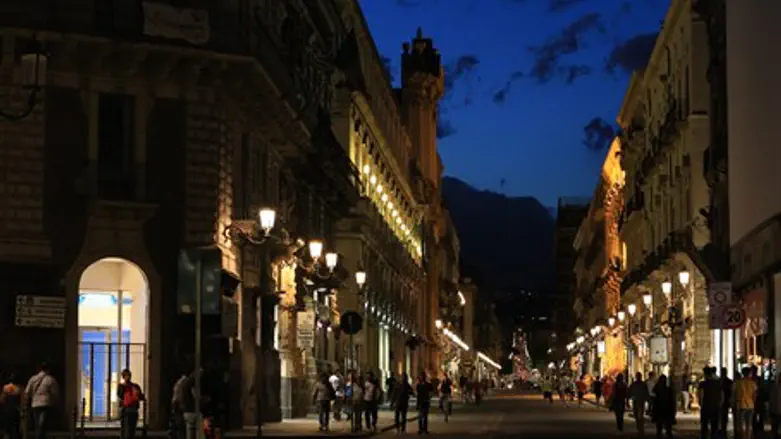
The citizens of Palermo didn't wait for a round number to commemorate the expulsion, forced conversion and persecution of Jews in Sicily over five centuries ago.
Earlier this month, exactly 523 years after all of the island's Jews were forcibly deported by Spanish decree, more than 1,000 Palermo residents participated in various activities aimed at ensuring that this dark chapter in Sicily's past is not forgotten.
The participants included senior municipal and church officials, professors, journalists and groups of high school students.
The events were organized by the Jerusalem-based nonprofit Shavei Israel organization and its emissary Rabbi Pinhas Punturello, in partnership with the Sicilian Institute of Jewish Studies.
Shavei Israel works with Bnei Anusim (formerly known by the derogatory name Marranos) and, as its website states, "all members of our extended Jewish family and… all who seek to rediscover or renew their link with the people of Israel."
The events began in the palace of Zisa in western Palermo with the screening of the film "The Passion of Joshua the Jew." The movie explores the persecution endured by Sicilian Jews in the years leading up to the expulsion. A discussion was then held, led by the film's director, Pasquale Scimeca, a descendant of Sicilian Bnei Anousim.
Participants later gathered at Palermo's municipal historical archives for a moving panel discussion. Heartbreaking testimonies of the cruelties perpetrated against the Jews, culled from Inquisition archives, were read aloud. A selection of Sephardic songs was then played by the Sicilian-Spanish musician Aleandra Bertolino Garcia.
Shavei Israel chairman Michael Freund says the special day highlights the "nascent rebirth" of the Jewish community in Sicily.
"Growing numbers of Sicily's Bnei Anousim now seek to embrace the heritage of their ancestors," he says. "This remarkable development is a stirring testimony to the indestructibility of the Jewish spirit, and it behooves us all to take note and encourage it."
A small ceremony marking the expulsion was held last year in Palermo, but this year's events marked the first time it was commemorated so expansively.
The archives were built on the ruins of the Great Synagogue of Palermo, described by the 15th-century Italian Torah scholar Rabbi Ovadia of Bartinura as "the greatest synagogue in the world."
Italian Jewry has its roots in history from the time of the Maccabees, with an unbroken links for over two thousand years. Jews lived in Sicily for almost eight centuries until the 1493 expulsion, a result of the infamous edict issued by King Ferdinand and Queen Isabella of Spain.
"Against all odds," writes Freund, "the Jewish spark in Sicily is once again coming to life. Our task now is to ensure that it is never again extinguished."